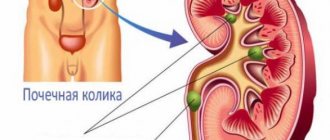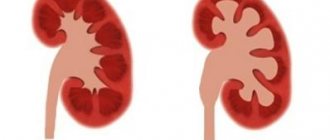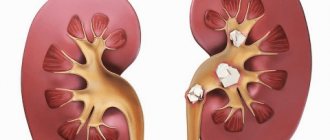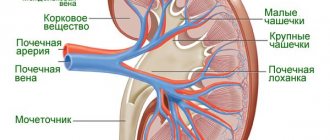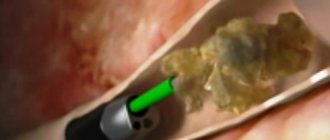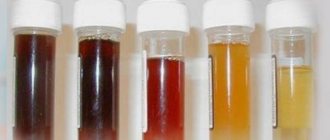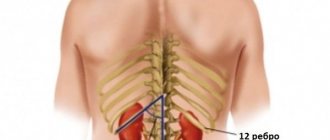Ayurvedic therapy
In Eastern medicine, the kidneys are considered a very important organ. Their function is closely related to the nervous system and reproductive organs. They play the same role in water metabolism as the large intestine plays in digestion. Just as poor nutrition harms the stomach and gastrointestinal tract , poor drinking habits destroy the kidneys and urinary tract .
Both excess and insufficient water intake, alcohol, diuretics and antibiotics, excessive sexual activity, suppression of the urge to urinate, and excessive intake of calcium and oxalic acid-containing foods such as spinach weaken the kidneys.
Kidney function is also weakened by long travel, excessive thinking, timidity and fears.
The kidneys weaken with age and are more vulnerable in sensitive and easily injured children.
Kidney cleansing
When the kidneys do not cleanse the blood properly, toxins can accumulate in large quantities in them and in the urinary tract. This is evidenced by the following symptoms:
- pain in the lower back and along the sciatic nerve,
- difficulty or painful urination,
- urinary tract infections,
- prostate enlargement,
- stones in the kidneys.
A good preventive measure is periodic flushing of the kidneys, which is performed in the warm season.
After a day of fasting, you should drink in the morning from 0.5 to 4 liters of water, to which soft diuretic herbs have been added - coriander, parsley, lemongrass, horsetail, corn silk or “Kidney tonic” (No. 10).
Overuse of diuretics can weaken the kidneys. Diuretics, having a strong stimulating effect on the kidneys, stimulate Vata. Drinking plenty of water, especially cold or iced water, also weakens the kidneys and usually increases kapha levels.
Our body consists primarily not of water, but of plasma, an oily substance. When drinking large quantities of water, especially distilled water, necessary substances are removed from the plasma and the body is depleted.
Water fills our body not only with liquid, but also with Prana, vital force. Drinking water that has been deprived of vitality due to chlorination or distillation can lead to various health problems. It is better to drink fresh spring water. The quality of drinking water can be improved by leaving it in a copper container overnight.
Aeration improves the quality of water and increases the content of Prana in it (for example, pouring it from glass to glass before drinking).
The best Ayurvedic remedy for toning and strengthening the kidneys is mumiyo. It improves the functioning of the kidneys and bladder, increases sexual energy, strengthens the nervous system, helps with diabetes, inhibits the growth of tumors, and has an antiseptic and stone-dissolving effect.
Mumiyo is suitable for all three doshas and is an excellent rejuvenating remedy (rasayana). For diseases of the urinary tract, it has both a cleansing and restorative effect and can be used for any of the conditions described in this chapter.
- You should take 0.5 - 1 g of purified resin twice a day or use the drug "Mumiyo".
Kidney diseases
Ayurvedic treatment for kidney diseases
Just as poor nutrition harms the stomach and gastrointestinal tract, poor drinking habits damage the kidneys and urinary tract.
Both excess and insufficient water intake, alcohol, diuretics and antibiotics, excessive sexual activity, suppression of the urge to urinate, and excessive intake of calcium and foods containing oxalic acid weaken the kidneys. Kidney function is also worsened by hard physical labor, long travels, worries, stress and fears. Weakening of the immune system, herpes, and bacteria can also cause diseases. The kidneys weaken with age and are more vulnerable in sensitive and easily injured children.
When the kidneys do not cleanse the blood properly, toxins can accumulate in large quantities in the kidneys and urinary tract. This is evidenced by symptoms such as pain in the lower back and along the sciatic nerve, difficult or painful urination, urinary tract infections, prostate enlargement, and kidney stones.
Drinking water that has been deprived of vitality due to chlorination or improper purification can lead to various health problems. It is better to drink fresh spring or melt water. The quality of drinking water can be improved by leaving it in a silver vessel overnight.
Dr. D. Frawley believes that the best Ayurvedic remedy for toning and strengthening the kidneys is mumiyo. It improves the functioning of the kidneys and bladder, increases sexual energy, strengthens the nervous system, helps with diabetes, inhibits the growth of tumors, and has an antiseptic and stone-dissolving effect. Mumiyo is suitable for all three doshas and is an excellent rejuvenating remedy (rasayana). For diseases of the urinary tract, it has both a cleansing and restorative effect. It is also recommended to use Grenim (neem extract) and Varuna.
To eliminate burning when urinating, sandalwood (a natural antiseptic for the urinary tract), coriander, boergavia, horsetail, lemongrass, fennel, and mumiyo are usually used. For pain in the urinary tract, brahmi, aloe juice, celery juice, Yogaraj guggul and Gokshuradi guggul are recommended.
For kidney stones, potent diuretics and stone-dissolving herbs are prescribed: corn silk, purple sapling root, Ayurvedic remedies - bergenia and mumiyo, thick beetroot decoction. Take herbs in the form of teas along with soothing herbs such as marshmallow or licorice, which are added if needed to relieve pain and burning. In natural therapy, teas from birch buds, blueberry leaves, and dill seeds are used. To wash away stones, you should drink a lot of water, sweet, astringent, but not sour fruit juices, and herbal teas. Guggul, myrrh and brahmi relieve pain.
For kidney diseases, watermelon juice is recommended. Infusions of bearberry leaves, knotweed, licorice, lemon balm, and St. John's wort help.
Here is another Ayurvedic recipe for treating kidney stones Take 20 grams of radish seeds and 20 grams of carrot seeds. Take a white radish, make a hole in it, place the radish and carrot seeds inside, cover the hole with the cut part, wrap it in aluminum foil and roast in the oven. Once the radishes are cooked through, remove the radish and carrot seed mixture from the hollow radish. Take five grams of these seeds daily, morning and evening. This is a strong diuretic - the stones will be passed out along with the urine.
For kidney and urinary system disorders, you should drink a buttermilk drink every day, at least three times a day: the first glass in the morning, the second in the afternoon, and the third with your evening meal. It promotes the healing process and treats depression and pessimism often caused by kidney disorders - including those caused by alcohol abuse.
For kidney diseases, it is very useful to eat radishes. It is a powerful diuretic that stimulates urination and removes toxins from the body.
Tea, coffee and other stimulants should be excluded from the diet; You should also not drink juices with a lot of sugar. Drink as much water as possible: this will help remove toxins from the body.
Slavic healing traditions use many compounds, and we will present some of them.
For cystitis: Lingonberry (leaves). 5 g of leaves are poured into 1.25 glasses of cold water, left for 10 hours, filtered and drunk evenly throughout the day. Hemp (fruit). For 1 part of hemp seeds take 10 or 20 parts of water. The seeds are ground in a clay or enamel bowl, gradually adding water in small portions until a homogeneous mass is obtained. Then the emulsion is filtered. Take 1-2 tablespoons 5-6 times a day. Flea plantain (seeds). Two tablespoons of fruits (seeds) are washed, poured with a glass of boiling water, and cooled for 10 minutes. Take 1 tablespoon of mucus on an empty stomach.
For urolithiasis: Red rowan (fruit). They drink syrup from the juice of fresh ripe fruits (juice from 1 kg of fruits is boiled with 600 g of sugar). Sweet woodruff (herb). Drink a steam of 10-15 g of the plant per 1 liter of boiling water, 1/2 cup 3-4 times a day. Nettle (leaves) - 20 g, calamus (root) - 15 g, mint (leaves) - 10 g, horsetail (herb) - 10 g, elderberry (flowers) - 10 g, juniper (berries) - 15 g, rose hips (fruits) - 10 g. Two tablespoons of the mixture are poured into a glass of boiling water, heated in a water bath for 30 minutes, cooled for 10 minutes, filtered, squeezed and adjusted to 200 ml. Drink 1/3-1/2 cup warm 2-3 times a day.
General kidney disease: St. John's wort. A tablespoon of herb is poured into a glass of boiling water, boiled for 15 minutes, and filtered. Drink 1/4 glass 3 times a day. Bearberry (leaves) - 1 part, birch (leaves) | - 1 part, corn (stigma) - 1 part, wheatgrass (rhizome) - 1 part. A tablespoon of the mixture is infused for 6 hours in a glass of cold water, boiled for 15 minutes, filtered. Drink 1/4-1/3 glass 3-4 times a day for cystitis. Contraindicated during pregnancy. Calendula (flowers). 40 g of flowers are steamed overnight in 1 liter of boiling water. Drink 3 glasses a day.
Note: There are some useful tips and advice provided here, but they are not intended to replace consultation with a qualified physician.
Urinary disorders (dysuria)
Urinary disorders and difficulty urinating are observed in most kidney diseases. Difficulty or painful urination can be due to arousal of any of the three doshas. Assessment of dysuria is important for the diagnosis and treatment of renal disorders.
Vata-type dysuria is characterized by severe pain in the lower back, rectum and urethra. Urination is frequent, scanty, accompanied by sharp or stabbing pain. There are symptoms of high Vata - constipation, insomnia, etc.
With Pitta-type dysuria, the urine turns dark yellow or red. Urination is frequent, sometimes copious, and is accompanied by a burning sensation. Fever, irritability and other symptoms of high Pitta are observed.
Kapha-type dysuria is accompanied by urine that is pale or milky in color and usually contains mucus. There is a feeling of heaviness in the lower abdomen, and a dull pain in the kidney area.
Principles of treatment of urinary disorders
Diuretic (diuretic and sedative) herbs and products are used. The best diuretic for all three doshas is gokshura , a widespread climbing, prickly weed that grows in fields and meadows. It acts effectively and at the same time gently, has a tonic effect on the kidneys, which prevents the arousal of Vata.
, the Fu Lin mushroom is considered the best general diuretic . It has a mild tonic effect, including on the spleen and heart.
Many plants have diuretic properties, and Western herbal medicine uses a number of such herbs, in particular bedstraw and plantain . One of the best diuretics is sarsaparilla , which also has a tonic effect.
Differentiated treatment of urinary disorders
For Kapha-type dysuria, a regular Kapha-reducing diet is prescribed.
- Cold drinks, fruit juices, cheese and other dairy products, oils and fats should be avoided
- are indicated - cubeba pepper, cinnamon, juniper berries in combination with parsley, bearberry or bedstraw.
- Among the preparations, a combination of Trikatu and the composition “Sandalwood” or “Kidney Tonic” (No. 10) with warm water is used.
Treatment of Pitta-type dysuria is in many ways similar to the treatment of urinary tract infections.
- Spices, oils, sour fruits, etc. are excluded from the diet.
- are used : gokshura, boergavia, bearberry, wintergreen, horsetail, burdock, plantain.
- Among the preparations - the composition “Sandalwood” or “Kidney tonic” (No. 10) with cool water.
Vata dysuria is treated by:
- with the help of emollient diuretics - such as gokshura, bala, marshmallow, licorice and sarsaparilla;
- Among the preparations, Gokshuradi guggul or “Kidney tonic” (No. 10) with milk are recommended.
Ayurveda's perspective on kidney stones
According to Ayurveda, poor diet and lifestyle lead to aggravation of all three doshas and weakening of the digestive fire, causing the formation of toxins (ama) in the body. These toxins move down the channels through which urine is excreted, where, in combination with aggravated doshas, the toxins crystallize, leading to the formation of kidney stones.
Ayurvedic treatment of kidney stones involves the use of diuretic and stone-dissolving herbs in acute cases. The body is then cleansed and strengthened using tonic and rejuvenating drugs. Panchakarma therapy is a very effective means of cleansing the body from the inside to help it regain its strength.
Urinary tract infections
With urinary tract infections, urination is difficult, frequent, with a burning sensation, pain, and blood or pus in the urine are also possible.
Acute infections are usually associated with high levels of Pitta.
During treatment, a diet that reduces Pitta is prescribed:
- Exclusion of alcohol, spices (except coriander) and nightshades, especially tomatoes.
- Cranberry, coconut and pomegranate juices shown.
- You should also reduce sexual activity.
General principles of treatment
Among Ayurvedic herbs , sandalwood (a natural antiseptic for the urinary tract), coriander, boergavia, lemongrass, fennel, and mumiyo are usually used to eliminate burning during urination.
Brahmi is recommended for pain in the urinary tract.
The preparations used include “Sandalwood” and Gokshuradi guggul or “Kidney tonic” (No. 10) with aloe juice.
Chinese medicine traditionally uses the following formulations: Dianthus (strong diuretic effect), Polyporus (moderate effect), Anemarchena, blackhead and rehmannia (weak diuretic effect combined with a tonic).
Among the herbs known in the West, bearberry (strong effect), wintergreen (moderate effect), horsetail, plantain and green mint are used. A good composition can be prepared from wintergreen, plantain, marshmallow, coriander, lemongrass and brahmi in equal parts.
Differentiated treatment
Urinary tract infections related to Vata are characterized by a chronic course, without regular exacerbations.
Herbs that tonic the kidneys - ashwagandha, bala, shatavari - are used simultaneously with mild diuretics.
You can take the composition “Ashwagandha” in combination with the drug Gokshuradi guggul or “Tonic for strengthening energy” (No. 2) together with “Kidney tonic” (No. 10).
Herbs known to Western herbal medicine include sarsaparilla and corn silk.
Kapha infections are caused by excess mucus in the kidneys.
Dairy products and fats should be avoided but spices can be used .
Herbs that work well include cinnamon, cubeba pepper, juniper berries, and parsley.
You can use conventional drugs that reduce the level of Kapha, for example, the composition of Trikatu in combination with mumiyo , which has more pronounced diuretic properties.
Kidney stone disease
Stones in the kidneys and urinary tract can be the result of an imbalance in any of the three doshas, but more often - Kapha (mucus), which accumulates in the urinary tract, and Vata (wind), which dries them out, leading to the formation of stones. Stones are mainly caused by poor diet, but other factors also play a role.
In acute conditions, potent diuretics and stone-dissolving herbs are prescribed: corn silk, purple sapling root, Ayurvedic remedies - bergenia and mumiyo, Chinese - lygodium and desmodium. They are taken in the form of teas along with soothing herbs such as marshmallow or licorice, which are added if needed to relieve pain and burning.
To wash away stones, you should drink a lot of water, sweet, astringent, but not sour fruit juices, and herbal teas.
Laxatives also help, especially with acute pain. You can use castor oil or rhubarb root. Foods that cause constipation should be avoided, particularly vegetables from the cabbage family and most legumes. Guggul, myrrh and brahmi relieve pain.
Features of manifestation (types)
Kapha stones are composed mainly of calcium, are soft, smooth, white in color and come out without much pain. Urine is usually copious, pale or whitish.
Pitta stones are composed primarily of oxalic acid salts, are yellow or reddish in color, sharp, and painful when they come out. Urine that is dark yellow, red, or has a burning sensation, often mixed with blood or pus.
Vata stones are composed mainly of phosphates, brown or black in color, rough, dry, irregular in shape, and cause severe pain in the lower abdomen and thighs. Urination is difficult, scanty, irregular, and may be accompanied by very severe pain.
Differentiated treatment
If you have a Pitta constitution, you should avoid nightshades (tomatoes, eggplants, peppers, potatoes), spinach, chard, onions and other foods rich in oxalic acid. Cilantro juice is beneficial.
In some cases, bitter laxatives, such as rhubarb, help. Additionally, potent cooling diuretics are used - bearberry, corn silk, purple sapling root, gokshura, and bergenia.
Those with a Vata constitution should avoid foods that are too light and dry, including dry grains like cornflakes. Tonic and emollient diuretics are recommended - sarsaparilla, sandalwood, marshmallow, ashwagandha and other mild diuretics, as well as corn silk and gokshura. Triphala and castor oil are good laxatives.
If you have a Kapha constitution, you should avoid cheese and other dairy products, fats, and oils. Potent diuretics with a bitter and pungent taste are used: bearberry, juniper berries, cubeba pepper and purpurea root.
In most cases, with stones in the urinary tract, it is useful to drink an infusion of corn silk (60 g per 0.5 liter of water) daily, to which you can add a little lemon grass.
Symptoms of kidney stones
Most people with kidney stones do not have any symptoms.
Usually the first symptom is a sudden, severe pain that occurs when urine is blocked by a stone and when it moves in the urinary tract, causing irritation.
It is characterized by sharp, spasmodic pain in the lower back, pelvis or lower abdomen, spreading to the groin with nausea, vomiting, burning sensation, frequent urination, cloudy urine with an unpleasant odor, fever and chills.
